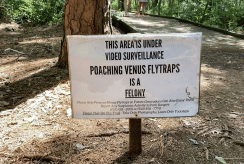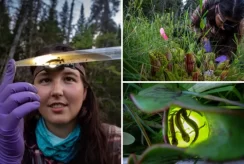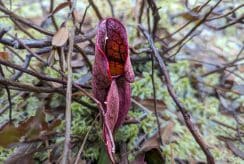Carnivorous plants have lined the soil of Canada’s wetlands for countless years. They hide so well that it is sometimes very difficult to locate them. So much so that a new species was discovered in British-Columbia in August 2021.
This species is the Triantha occidentalis, also known as the western tofieldy. It is a plant with long stems supporting beautiful white and yellow flowers. This discovery makes this plant the first carnivorous plant to be discovered in 20 years. The author of this rare find is named Qianshi Li, a doctoral student at the University of British Columbia.
This could have delighted the scientific community because predation mechanisms are very rare at the level of plant species, thus giving all the letters of nobility to carnivorous plants.
The trap of the Triantha Occidentalis is found all along the stem supporting the flower. Some will wonder why a flower would put a trap around it knowing that it needs pollinating insects in order to spread its pollen, yet carnivorous plants always take care to protect the benefactor insects. This is why, the stem is provided with microscopic sticky hairs, thus making sure to let go of the bees and the butterflies being more beefy and having the energy to free themselves.
Western tofieldy will therefore be fatal to any other small insects that may crawl or land on its stems. They will stick to it, will get tired and finally, the small plant will be able to feed itself by consuming the insect.



